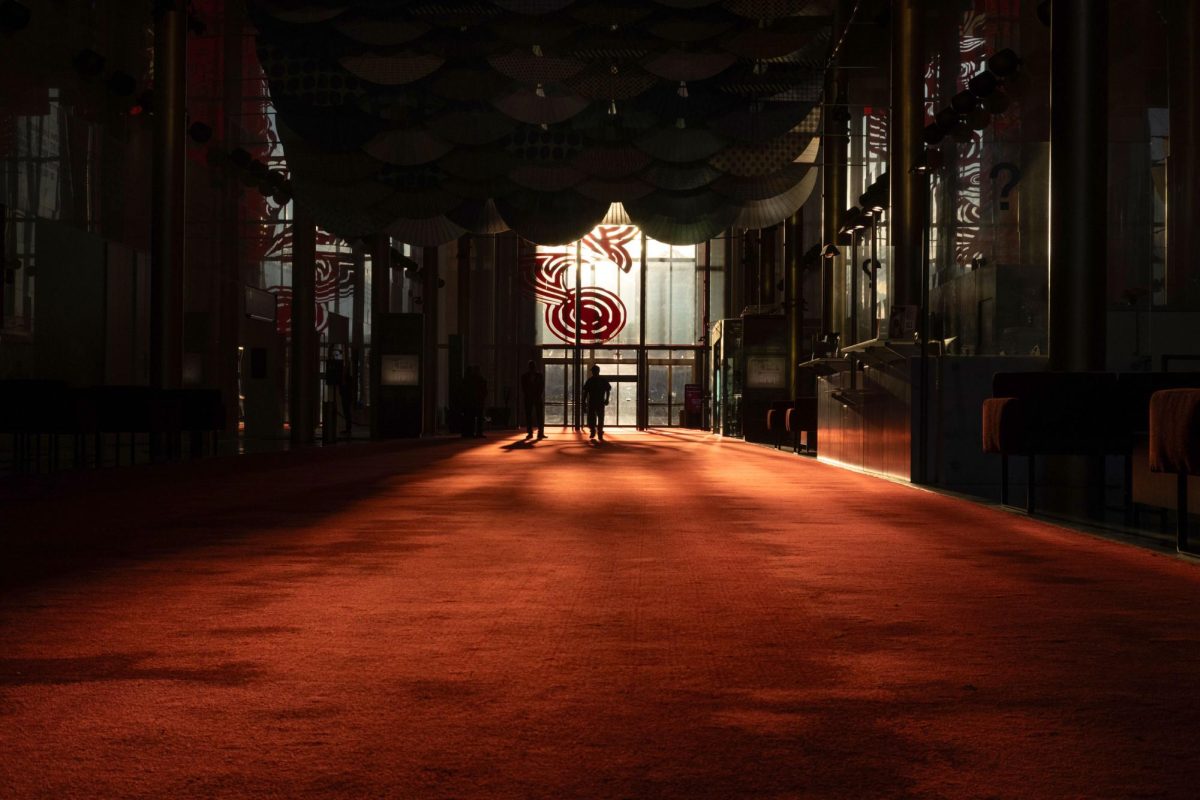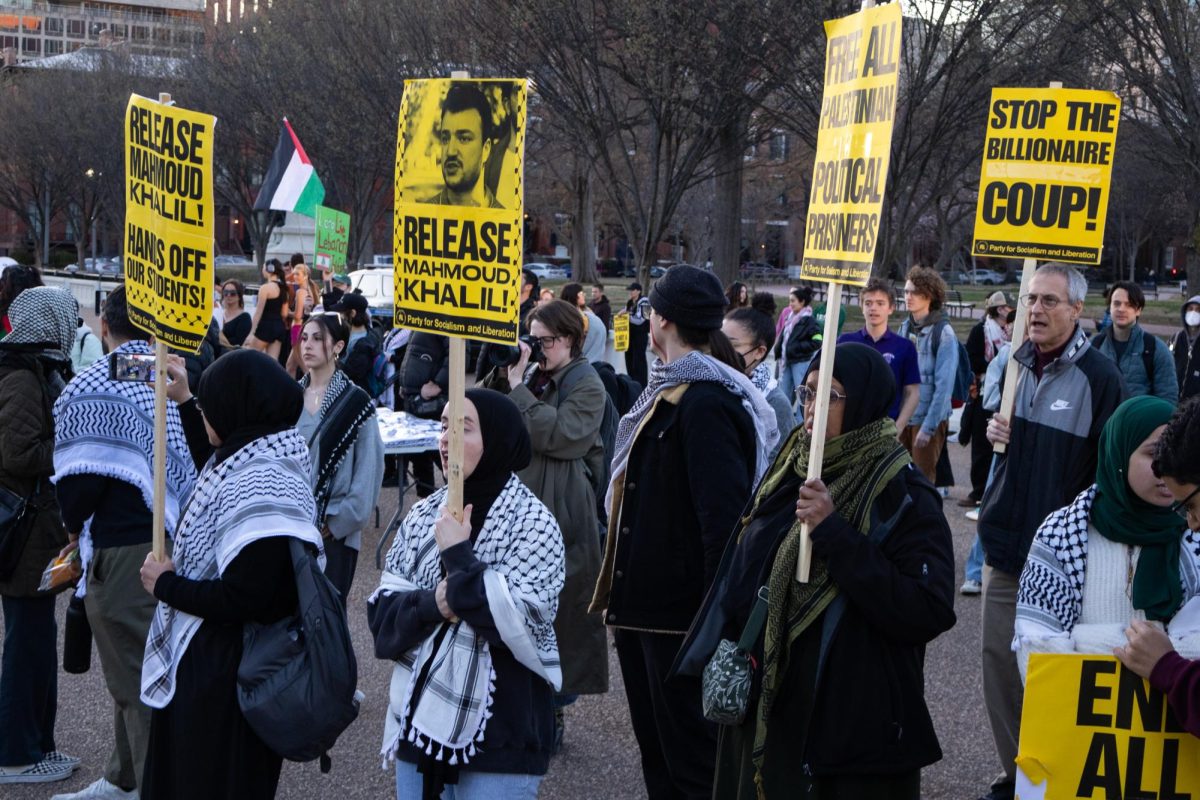Kennedy Center leadership began dissolving the Center’s Social Impact initiative, which invited diverse artists to host events at the Center, late last month on the heels of President Donald Trump’s takeover of its board in February.
Seven of the initiative’s employees received letters informing them of their termination last month signed by Kennedy Center Vice President of Human Resources LaTa’Sha Bowens, while three of the team’s employees whose roles were not equity-focused remained, NPR reported. Multiple artists and partners linked with Social Impact’s equity programming said they didn’t receive warning from Kennedy Center officials ahead of the elimination of the Social Impact division, leaving artists and collaborators of the initiative’s programs unsure of the future of their projects at the Center.
The Kennedy Center created the Social Impact program in July 2020 to support anti-racism at the Center through “organizational self-evaluation,” increased engagement with Black artists and communities, offering meeting spaces for artists and diversifying events. Just months prior, Officer Derek Chauvin killed George Floyd, sparking off a series of racial justice protests across the country.
“While our plans to introduce future phases of our Social Impact initiatives have been in the works for over a year, current events have re-focused and re-doubled our efforts,” the Center said in a July 2020 statement.
The Social Initiatives was the home of several equity-based projects, including The Cartography Project, a multiyear initiative that compiles works from composers and artists of color representing American communities grieving the aftermath of race-based violence.
The move to dismantle the Social Impact Initiative follows Trump’s decision to assume control of the Kennedy Center in February, prompting interim leadership to order staff terminations and leaving participating artists and organizations without formal communication about their futures at the Center.
The Social Impact division’s programs drew over 65,000 attendees in 2023, according to a 2024 report. In 2023, 18 percent of the Social Impact’s audience earned under $50,000 compared to about 12 percent of low-income ticket holders attending non-Social Impact events.
About 40 percent of attendees of Kennedy Center Social Impact events were people of color, compared to about 30 percent at non-Social Impact shows, the report states.
Last month, Interim Executive Director Richard Grenell, who Trump appointed in February, called the Kennedy Center’s spending on the Social Impact initiative a “criminal” mismanagement of funds before Trump took over the Center. The Center reported a $6 million overall profit in 2023.
Grenell said late last month that Diversity, Equity and Inclusion programs were among “common sense” cuts he’d make at the Kennedy Center. Trump signed an executive order aiming to end DEI practices in the federal government last month.
Grenell did not respond to requests to comment on what programs have been cut and how many people have been fired. The Kennedy Center did not return multiple requests for comment.
Kristina Wong, a comedian and actor who said she was in the middle of a three-year Social Practice Residency — a flagship program under the Center’s Social Impact initiative — said while the Kennedy Center laid off Social Impact staff, they haven’t formally terminated her temporary contract.
“It feels clear that there’s nobody there at the Kennedy Center to carry on the contracts that were signed by a department that no longer exists,” Wong said in an email. “The program and the staff that carried out our fellowships is now gone.”
The Culture Caucus, which works with the Social Impact team to host events, partnered with Free Minds Book Club & Writing Workshop to showcase works by incarcerated and formerly incarcerated artists for the period of 2024-26. Their March 21 event at the REACH, “Poetry and Art as Liberation,” featured pieces of writing and visual art by incarcerated artists.
“People have just shared how meaningful it was to see their work in this esteemed venue,” Julia Mascioli, Free Minds’ deputy director said.
Mascioli said incarcerated writers who were unable to attend the March 21 event were “very excited to be included” and share their work with local audiences.
The event took place six days before Kennedy Center leadership dissolved Social Impact, and as a result, canceled the rest of the Free Minds workshops. Free Minds learned of the program’s cancellation through the March 26 NPR report and later received informal confirmation from a staffer for the Center, Mascioli said.
She said before the Kennedy Center canceled the event, she was looking forward to increasing the visibility of the group’s work through the Center’s audiences and media attention.
“There were a lot of benefits we were looking forward to that didn’t necessarily come to cash because the program was cut short,” Mascioli said.
Rola Zaarour, also known as Rola Z, first hosted her comedy show “Funny Arabs,” as part of the Social Impact series, at the Kennedy Center in 2023. Zaarour played her stand-up show “Traumedy,” also part of the Social Impact series, for the third time on March 7, weeks after Trump secured the Center’s chairmanship.
“I will continue to work with the Kennedy Center on other shows to uplift artists and bring laughter and unique programming to the audience,” Zaarour said in a message.
Director of Development and Communications Fabiana Gibim said Kennedy Center leadership withdrew support for an annual event by Crushing Colonialism, an Indigenous, queer and disability-led collective and a member of the Kennedy Center’s 2024-25 Culture Caucus, called “Decolonized Beatz Indigenous World Pride” in March. Gibim said the Trump administration’s direction to Kennedy Center leadership to withdraw support from “drag and drag-adjacent content” removed funding for the event’s ASL interpretation, live streaming and accessibility accommodations required for disabled participants.
Gibim said that the Center offered “no real explanation” for the event’s pulled funds, only stating it was “upholding a policy” to defund drag-related events. Kennedy Center Leadership notified the organization on April 1 that they eliminated the Culture Caucus, Gibim said.
“They never specified what was ‘drag-adjacent.’ And what does this mean? And it could refer to anything. And as we’re a transparent LGBTQA+ whole community and needed by a transparent following director, this could easily been all of us,” Gibim said.
She said the Center proposed removing “drag-adjacent” elements from the show to retain funding, which Gibim said the collective rejected as “bizarre” because drag falls under pride’s periphery.
Gibim linked the withdrawal to a pattern of government institutions that “hold opportunities in front of our faces only to pull the rug from us,” particularly for Indigenous and disabled artists. The group, which has operated without major funding sources since 2017, now has to fundraise to sustain the event.
“It’s not just about them dropping us or canceling the event. It’s also about the trauma,” Gibim said.





